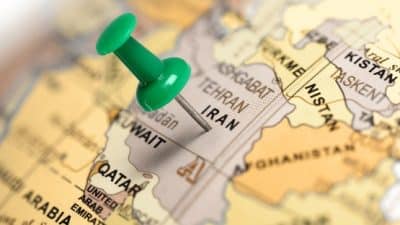Where in the world is there left to gamble online, and who is responsible?
North America
In 2006, under the presidency of George W. Bush, the United States of America passed the Unlawful Internet Gambling Enforcement Act (UIGEA), making most types of online gambling illegal. This, in turn, led to the collapse of the industry as a whole. America, can never quite seemingly make up its mind what is and isn’t gambling (just ask daily sports fantasy sites like Fanduel and Draft Kings). For some, highly dubious reason, poker got a reprieve. Where the once popular online poker room, PartyPoker, had left the US market following the passing of the original act, Full Tilt Poker and PokerStars moved to fill the void, and carry on the Chris Moneymaker legacy that had been sparked the online poker boom in 2003.
This lasted for another five years until, on April 15, 2011, the three largest operators of online poker in the US were taken off the internet courtesy of the US Department of Justice, leaving American players locked out. This notorious day in the e-gaming world became known as Black Friday, as PokerStars, Full Tilt Poker, and Absolute Poker were removed as an option for players in the US due to a court decision deciding that any profits received by the rooms after UIGEA had passed would have been illegally gained. It was decided that the sites had circumvented this by laundering any profits through banks and online payment processors, some of which had been bribed for their participation.
As of July 2011, sites were back online offering only play money games in all but three states – New Jersey, Delaware and Nevada – where real money gambling like poker on the internet. With each passing year, more and more states are opening up to gambling and it’s going fairly well, leading to the industry’s prospects beginning to look up in a few states, namely California, New York, Michigan and Pennsylvania. Online gambling revenue is just about increasing in the majority of the states that allow it, but predictions of a billion dollar boom have been well off the mark.
Now the industry faces threat again as, one time Atlantic City Taj Mahal Casino owner, Donald Trump, is about to get his tiny feet under the Lincoln desk of the Oval Office and the future could be bleak, once more, for online gambling. Trump’s running mate in the last election, Mike Pence, will shortly be his vice president and, with many believing that he is the organ grinder to Trump’s monkey, there is concern that his values will stretch to a blanket ban on online gambling.
The key factor to this is that Pence backed a bill put forward by Sheldon Adelson, the Las Vegas Sands chairman (pictured above watching Mike Pence in the front row). He is a known enemy of online gaming, wishing instead for it to remain a physical activity from which he benefits. So committed is he to outlawing the online version of his very own industry that he has supported Trump to the tune of $100 million, stating that he will spend “whatever it takes” to achieve a ban, while Trump has himself has stated that billionaires only ever donate to politicians in order to gain access, so things could yet turn out bad for gaming again Stateside.
Europe
In 2005, British Prime Minister drew up the Online Gambling Act which passed in Whitehall and today the United Kingdom have one of the most flourishing online gambling markets and all round industries with many British bookmakers thriving in their online space as well as in their traditional high street shops. The UK, unlike Spain, France and Italy, share liquidity with many other European nations, most of which allow legalised online gambling, be it sports betting on real money casino games.
In 2012, German Chancellor Angela Merkel passed a law that allowed some gambling services to be provided after their previous rules were found to monopolise and stifle what little gaming there was on offer. At one point, there where moves by one party to ban all forms of online gambling in Italy but the party that floated the idea, has dissipated. Spain, on the other hand, are regularly tweaking their attitudes towards gaming but, for now, seem to have settled on allowing players to play only on sites that have Spanish licences, as is the case in France with their regulators, Arjel.
Elsewhere in Europe, there have been more complicated systems in place, as in Portugal or Norway, where the only online gambling allowed was with government sponsored operators. Again, this has changed as Europe regularly flip, flops between what is too much or too little, not enough choice too Vs too many choices and who to share their player pools with. But, in general, Europe remains the epi-centre of online gambling as its liberalised view point and community cohesion (at least at this level) has seen the whole continent benefit.















